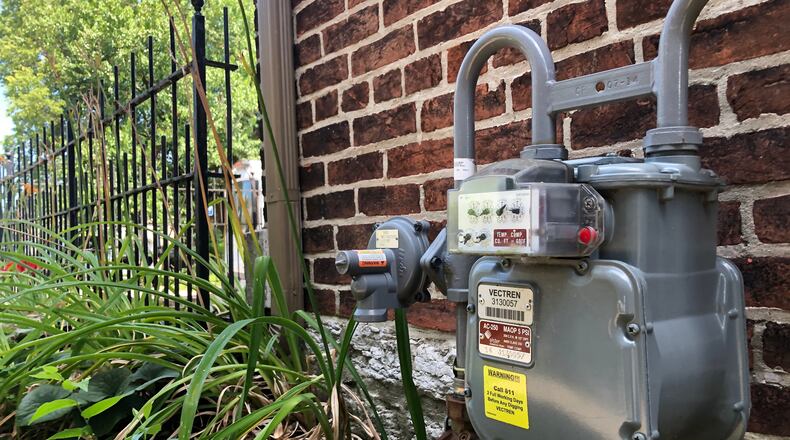“I think we have done a good job of partnering with our customers to inform them of their options,” said C. LaShea Lofton, Dayton’s deputy city manager and finance director. “Don’t think that some amount isn’t enough: We will work with you.”
On July 14, the city of Dayton recommended shutting off water service to delinquent accounts for the first time since mid-March.
On the first day back from the moratorium, the city had 60 shut-offs scheduled, but not all were completed.
During the coronavirus shutdown, many people lost their jobs or some of their income, making it tough to pay their bills.
Despite these challenges, the city did not see a “tremendously” large increase in delinquent accounts, Lofton said.
City officials and social service organizations urged Daytonians to use some of their stimulus money to pay their rent and utility bills, and Lofton says she believes many people heeded this advice.
The city had about 3,200 accounts that were delinquent before the pandemic that did not make payments or set up a payment plan during the crisis, meaning they could be subject to disconnection, Lofton said. The average past due balance was about $191, she said.
About 704 Dayton water customers have signed up for payment plans, which are very generous and can stretch payments out over 12 months, Lofton said.
About 280 of those payment plans are still active, she said, and 258 have been completed, meaning the past-due balances were paid.
Other customers have signed up for a re-occurring payment option, where they systematically pay a fraction of what they owe, Lofton said.
Water bills are sent out every quarter, many customers during the public health emergency learned they can avoid a large bill by paying in small increments, Lofton said.
“Customers never have to wait to pay the whole thing: You can always pay as little as $5 every week,” she said.
Since the start of the outbreak, the city has seen a 43% increase in payments at retail locations that accept water bill payments, including Family Dollar and CVS, Lofton said.
Customers facing financial hardship who contact the city’s call center may be referred to Miami Valley Community Action Partnership, which has received some federal funds to assist citizens with utility bills.
Referrals are done electronically, so customers do not need to contact Miami Valley CAP, which will evaluate their circumstances and eligibility for assistance, Lofton said. The referrals already have helped some Dayton customers keep their service on.
The city has shut off water service to more than 20,000 delinquent accounts in each of the past five years, this newspaper reported in March. Dayton has more than 69,000 accounts, which includes residential, commercial, business and retail customers.
The city is experiencing high call volumes since disconnections have resumed. The call center can be reached at 937-333-3550. Customers also can email the city at paydaytonwater@daytonohio.gov.
Last week, DP&L said after Sept. 1, standard billing and collection processes, including late fees, will resume.
But the company says it is giving customers with past-due balances payment options, and delinquent accounts can expect to receive communications with information about bill assistance plans and enrollment options.
Starting in early August, DP&L’s payment plan website will go live, allowing residential customers to review and enroll in a 6, 9 or a new 12-month payment agreement. Business customers can extend their unpaid balance across 6 months.
DP&L said it will modify its website to allow customers to select the payment extension that best fits their budget.
Also, DP&L is updating its phone system to accommodate customers who prefer self-service by calling (800) 433-8500 to select their payment extension preference.
DP&L said it will continue to suspend all credit card fees with electronic payments made through the terms of the new 12-month payment plan, or November 2021.
Eligible customers can also benefit from DP&L’s “Gift of Power” program through October 15. The program is emergency relief funded by DP&L customer donations and a $165,000 grant by the company.
The program, administered by The Salvation Army and typically targeted to winter heating needs, has been extended to offer one-time grants to eligible customers, DP&L said.
“At DP&L, we care about our people, customers and communities, and understand the ongoing challenges caused by the COVID-19 pandemic,” Lisa Krueger, president of DP&L corporate parent AES U.S. strategic business unit, said in a statement.


